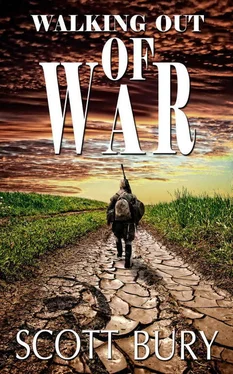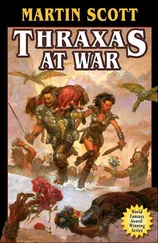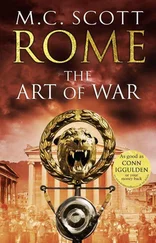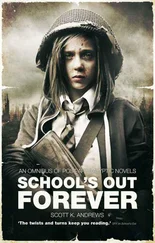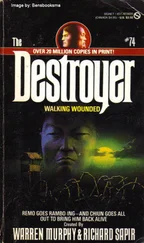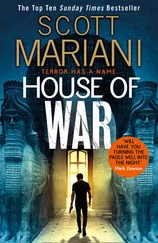In June, the Red Army had launched Operation Bagration. Two million men, thousands of tanks, heavy assault guns and airplanes, attacked in a coordinated series of attacks along a front that stretched from Estonia to Romania, accompanied by 220,000 trucks from the U.S., with tanks and guns from Britain, tonnes and tonnes of food and ammunition from the West. In two months, they pushed the Germans out of Belorussia.
The Soviets annihilated the German Army Group Center. Hundreds of thousands of German soldiers were killed, wounded and captured, including thirty-one generals—a quarter of the German strength on the Eastern Front gone in two months.
The Red Army’s losses, while not as severe, were still huge: 800,000 casualties, including over 180,000 killed and missing.
In August, the communists put Maurice and other men they had rounded up on a train. Two days later, he found himself in a training camp in the Donbas region, the basin of the river Don, famous for coal production and hot summers.
Three years earlier, Maurice had thought that the drill sergeants in the officers’ camp were tough. In the camp for enlisted soldiers, the trainers drove the recruits like demons, trying to make them combat-ready in four weeks.
They went on marches for half a day, running much of the time, or dug holes in the ground for no reason.
Maurice was a little better off than the raw recruits. With his previous officer experience, he knew what the drill sergeants wanted. Sometimes too well.
Most of the new recruits were very young, the last remaining boys from the farms and villages across Ukraine, those unlucky enough to reach their seventeenth birthdays before the war ended.
Not all were young, though. Old Stepan was in his forties, and Maurice wondered sometimes if Stepan’s story wasn’t similar to his own. But Stepan obviously had no experience with weapons or army life, and could not keep up with boys half his age.
One very hot day, the sergeant assigned Maurice, Stepan and eight young boys to pull an obsolete heavy cannon up a hill. They knew better by this time than to grumble. Four boys put leather straps over their shoulders and pulled; Maurice and another got behind to push, leaving Stepan and the remaining boys to pull a wagon of ammunition. With the sun beating down on them and the humidity making every breath a chore, they hauled the massive gun across a muddy field to the bottom of the hill. The wheels squeaked and stuck, then sank into the mud.
“Get moving, you lazy buggers!” the sergeant yelled. “You think Fritz is going to wait for you to get your lazy asses moving? You’d all be dead a hundred times over by now on the battlefield!”
Maurice wondered if the sergeant had ever been to the battlefield, and decided that, in all likelihood, he had. There was almost no one left in Ukraine or Russia now who hadn’t been scarred in some way.
So they pushed and pulled the gun across the mud, trying as much as possible to stay on grass so the wheels wouldn’t sink so much into the ground. The sergeant had chosen their route to be as difficult as possible.
Halfway up the hill, the wheels stopped turning. The boys paused barely long enough to determine that the cause was too much mud caked around the axles before the sergeant was screaming at them again to keep moving. “The fucking Germans aren’t so polite they’ll let you clean up! Your comrades are dying on top of that hill unless you get that gun up there! Get moving, you fucking little girls!” Pushing the cannon became dragging the cannon.
It was nearly noon by the time they got the gun to the top of the low hill. Their uniforms were soaked and caked with dust. All the boys fell onto the ground, exhausted.
“Get up!” said the sergeant. The heat was getting to him, too: his shirt was wet with sweat and he wasn’t raising his voice anymore. “The Germans have retreated. Take this gun back to the base.”
The boys couldn’t help groaning, but the sergeant let that pass. They all stood up wearily and picked up the straps. Only Stepan stayed on the ground.
“Won’t you join us, comrade?” the sergeant sneered.
“I can’t,” Stepan puffed. “I’m worn out.”
The sergeant pulled his pistol from its holster. “Get up, you lazy son of a bitch, or I’ll shoot you right now!”
Eyes wide, Stepan got up, picked up a box of ammunition and led the troop down the hill.
On the train to Finland
September 1944
Three years to the day after the launch of Operation Barbarossa, the USSR launched its largest offensive of the war: Operation Bagration. Despite pleas from the western Allies to time the attack to coincide with D-Day on June 6, the Stavka, the supreme command in Moscow, had stuck to their symbolic date of June 22.
A month later, Ivan Konev’s First Ukrainian Front began the Lvov-Sandomierz Offensive to drive the Germans out of the last bit of Ukraine and eastern Poland.
The operation began with the Soviet military strategy called maskirovka , or deception. While the German high command made four contingency plans for likely Soviet offensives, the Stavka moved forces and leaked information to trick the Germans into diverting their already depleted forces from Poland and Romania into Belorussia.
Bagration launched simultaneously along a front that stretched thousands of miles from the Baltic to Belorussia. By the end of July, the Red Army had reached the Gulf of Riga, splitting the German Army Group North and Army Group Centre. The Germans counterattacked and managed to create a short-lived corridor between the two groups, but ultimately the forces in Estonia and Latvia were cut off.
Meanwhile, Stalin renewed attacks on Finland in June, hoping to knock it out of the war so the Red Army could concentrate on the drive to Berlin. The Stavka sent fresh resources to the newly liberated Leningrad, and from there to the Karelian Isthmus. The Finns fought the Soviets to a virtual standstill through the summer and into September, 1944.
Maurice looked out the window at a scene that brought his mind back three years. He remembered peering out a narrow opening in a freight car hurriedly converted to carrying troops, seeing row after row of train tracks, wagons filled with soldiers and weapons, the city of Kyiv burning behind all that.
That time, he had been an officer, fresh out of the academy in Akhtyrka in eastern Ukraine. He remembered how the train carrying the disorganized, demoralized Red Army had pulled into Kyiv that was already under attack. Operation Barbarossa was the greatest land invasion in history, and the Red Army reeled back from it, suffering hundreds of thousands of casualties. The Germans took millions of prisoners, whole armies.
Maurice unconsciously rubbed his knee where shrapnel had torn into it that summer day in 1941. He thought, though, of those 11 men he had commanded in 1941. They had been an anti-tank squad, but their weapons had been no match for the Panzer. They had retreated before the onslaught almost all the way across Ukraine, until they were captured along with millions of other men near Kharkiv. Then the greatest stroke of luck in his life. One of the officers in charge of the prison camp was a man he knew. A Ukrainian who had joined the Germans, believing the false promise of “freedom for all nations” from communist oppression. His name was Bohdan, but when he joined the German Army, he changed his name to Daniel. And he took an immense chance in freeing his old friend, along with the 11 men in his command.
Where is Daniel now? Is he alive or dead? Will I ever learn?
Now, in 1944, he peered out the window of a car that was actually fitted for transporting troops, with seats and real windows. For a moment, he looked at his pale reflection in the glass. He had always been slim as a youth, but now he was thin, hardened by nearly four years of war and espionage. There were the beginnings of little lines around his expressive brown eyes. The wave in the front of his hair, of which he had once been proud, somehow persisted, but now he thought it a futile display, like a peacock’s feathers when facing a man with a shotgun.
Читать дальше
